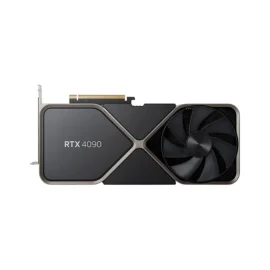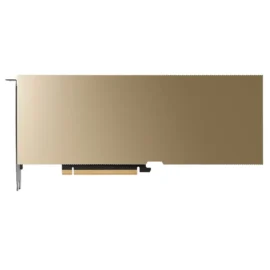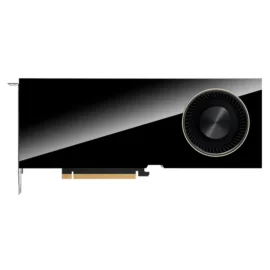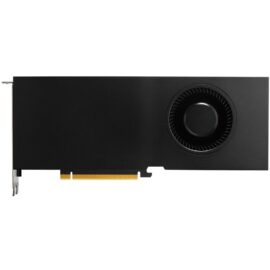In recent years, the AI revolution has become one of the most transformative forces in technology. From autonomous vehicles to advanced healthcare applications, artificial intelligence is shaping nearly every industry. However, beneath the software breakthroughs lies the critical role of AI hardware companies that develop the infrastructure powering these advancements. These companies are at the forefront of designing and manufacturing the processors, accelerators, and specialized hardware that enable AI models to process vast amounts of data efficiently.
1. NVIDIA: Dominating the AI Hardware Landscape
NVIDIA is arguably the most prominent player in the AI hardware sector. Founded in 1993, the company initially made a name for itself in the gaming industry with its graphics processing units (GPUs). However, over the last decade, NVIDIA has successfully pivoted into the AI and machine learning space.
NVIDIA’s GPUs, particularly the Tesla and A100 series, are widely used in data centers, supercomputers, and AI research. GPUs are designed for parallel processing, which is crucial for training machine learning models that require handling large datasets simultaneously. The company’s CUDA software framework has become a go-to tool for developers working with machine learning algorithms. Additionally, NVIDIA’s acquisition of Mellanox Technologies has bolstered its AI infrastructure offerings with high-performance interconnect solutions.
NVIDIA continues to innovate, with the launch of the H100 and H200 GPUs, designed specifically for data centers and next-generation AI workloads, such as deep learning and natural language processing.
2. Intel: A Strong Contender in AI Hardware
While NVIDIA dominates the GPU space, Intel has a significant presence in AI hardware, primarily through its CPUs and specialized accelerators. Intel’s Xeon Scalable processors are commonly used in AI servers, offering a balance of performance, energy efficiency, and scalability.
Intel has also invested heavily in AI through acquisitions, such as Habana Labs, a company focused on developing AI-focused processors. Habana’s Gaudi and Goya processors are designed to deliver high performance for deep learning training and inference tasks. Intel’s AI hardware ecosystem is centered around integrating its CPUs with these accelerators, providing a complete solution for AI developers.
In addition to this, Intel has made strides in optimizing its hardware for AI applications, including enhancing its FPGAs (Field-Programmable Gate Arrays) and VPU (Vision Processing Units), designed for edge AI applications like computer vision and robotics.
3. AMD: Rising Competition with AI Accelerators
Advanced Micro Devices (AMD) has made significant inroads into the AI hardware space in recent years. Known for its competition with Intel in the CPU market and NVIDIA in the GPU market, AMD has positioned itself as a strong alternative in AI processing.
AMD’s Radeon Instinct and MI Series GPUs are geared towards data centers and AI applications. These GPUs provide high throughput and low latency for machine learning tasks and are used in AI model training. AMD has also integrated AI-focused features in its CPUs, providing developers with a flexible platform for a range of AI workloads.
What sets AMD apart is its focus on providing high-performance, cost-effective solutions, which is appealing for businesses looking to scale AI infrastructure without breaking the bank. As AI continues to grow, AMD’s innovation in hardware solutions is expected to play a more significant role in shaping the future of AI processing.
4. Google: Innovating with Custom AI Chips
Google has taken a unique approach to AI hardware with its development of custom chips designed specifically for machine learning tasks. The company introduced its Tensor Processing Unit (TPU) in 2016, marking its entry into the AI hardware space. The TPU is designed to accelerate machine learning workloads, especially deep learning tasks, and it has become a key component in Google’s data centers, powering services like Google Search, Google Photos, and Google Assistant.
The TPU is a high-performance, energy-efficient chip optimized for TensorFlow, Google’s open-source machine learning framework. Google continues to develop its AI hardware, with the TPU v4 now being used in cloud computing services for AI model training and inference.
By designing its own AI chips, Google can optimize its hardware and software stack, enabling more efficient AI processing and reducing dependency on third-party vendors.
5. Apple: AI at the Edge
While Apple is often associated with consumer electronics, it has made significant strides in AI hardware for edge devices. The company’s custom-designed A-series chips, such as the A15 Bionic, incorporate specialized neural engines designed for on-device AI processing. These neural engines power features like Face ID, real-time photo enhancements, and augmented reality applications in devices like the iPhone, iPad, and Apple Watch.
In addition to this, Apple has also developed the M1 and M2 chips, which feature advanced AI capabilities for both mobile and desktop devices. Apple’s focus on integrating AI directly into its hardware allows for faster, more efficient processing without relying on cloud-based resources, making it an attractive choice for edge AI applications.
6. Graphcore: Pioneering AI Accelerators
Founded in 2016, Graphcore is a UK-based AI hardware startup that has gained attention for its Intelligence Processing Unit (IPU). The IPU is a specialized processor designed specifically for AI workloads, with a focus on machine learning models that require high levels of parallelism.
Graphcore’s IPU excels in training complex deep learning models with lower energy consumption compared to traditional GPUs. The company has secured substantial investments and partnerships with major players like Microsoft, with its IPUs being used to accelerate AI research and development.
With AI research becoming more complex, Graphcore’s focus on purpose-built accelerators is positioning the company as an important player in the AI hardware landscape.
7. Other Notable AI Hardware Companies
Beyond the major players, several other companies are contributing to the development of AI hardware, including:
- Qualcomm, which is leading the charge in mobile AI with its Snapdragon processors and AI engine for smartphones and IoT devices.
- Cerebras Systems, which has developed the world’s largest chip, the Wafer-Scale Engine, designed to accelerate deep learning.
- Huawei, which has launched its own Ascend AI chips to compete with NVIDIA and Intel in the AI accelerator market.
- Alibaba, through its Pingtouge AI chips, which power its cloud AI offerings.
Conclusion
AI hardware companies are at the heart of the AI revolution. From processors to accelerators and custom chips, these companies are constantly pushing the boundaries of what is possible in AI performance. As machine learning models become more complex and data demands grow, AI hardware will play a critical role in enabling the next wave of innovation. Whether through GPUs, TPUs, or custom accelerators, the companies driving AI hardware development are shaping the future of technology, enabling the real-world applications of AI that will define our digital future.






